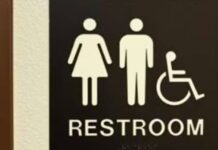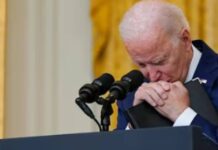
The president isn’t happy with the courts as of late. They seem to be getting in the way of his agenda.
And a federal court sent Trump into a fit of anger over this appalling ruling.
A divided federal appeals court delivered a significant ruling on Wednesday, stopping President Trump’s executive order aimed at ending birthright citizenship from moving forward. The 9th US Circuit Court of Appeals, in a 2-1 decision, upheld a lower court’s order, affirming that the directive issued on January 20 faces substantial constitutional challenges.
Judges Michael Day Hawkins and Ronald M. Gould, both appointed by former President Bill Clinton, formed the majority, with the majority opinion declaring, “The district court correctly concluded that the Executive Order’s proposed interpretation, denying citizenship to many persons born in the United States, is Unconstitutional. We fully agree.”
The decision came in response to a lawsuit filed by Democratic attorneys general from Washington, Arizona, Illinois, and Oregon, who argued that the order violates the Constitution.
The ruling ensures that an injunction from Seattle District Judge John C. Coughenour remains in place, halting the executive order nationwide. The majority emphasized that anything less than a nationwide injunction would not provide “complete relief” to the states challenging the policy, justifying the sweeping block.
Dissent Questions States’ Standing
In a partial dissent, Judge Patrick J. Bumatay, a Trump appointee, argued that the states lacked the legal standing to challenge the administration’s order. “Courts must be vigilant in enforcing the limits of our jurisdiction and our power to order relief,” Bumatay wrote.
“Otherwise, we risk entangling ourselves in contentious issues not properly before us and overstepping our bounds. No matter how significant the question or how high the stakes of the case — at all times, we must adhere to the confines of ‘the judicial Power.’” He did not, however, weigh in on the order’s constitutionality.
This decision follows a recent Supreme Court ruling that cast doubt on the authority of lower courts to issue nationwide injunctions, noting they “likely exceed” the judiciary’s constitutional scope.
Yet, the high court permitted exceptions for plaintiffs like states or those in class-action lawsuits to pursue universal injunctions when needed for full relief.
The Ninth Circuit leaned on this allowance, stating that the Seattle district court “did not abuse its discretion in issuing a universal injunction in order to give the States complete relief.”
Trump’s Order Challenges the 14th Amendment
Trump’s executive order sought to restrict automatic citizenship to children born in the US to at least one parent who is an American citizen or legal permanent resident. The policy challenges the 14th Amendment’s clear language: “[a]ll persons born or naturalized in the United States, and subject to the jurisdiction thereof, are citizens of the United States and of the State wherein they reside.”
The president has argued that birthright citizenship fuels “birth tourism,” where foreign nationals give birth in the US to secure citizenship for their children.
Trump and his allies also claim the Civil War-era 14th Amendment, originally intended for the children of freed slaves, has been misapplied to include children of migrants.
Courts Nationwide Push Back
The Ninth Circuit’s ruling aligns with decisions from federal judges in New Hampshire, Maryland, and Massachusetts, who have also issued broad injunctions blocking Trump’s order.
Since the Supreme Court’s guidance last month, both the Ninth Circuit and a New Hampshire district court have upheld temporary nationwide injunctions, signaling strong judicial resistance to the president’s policy.
Stay tuned to The Federalist Wire.



















